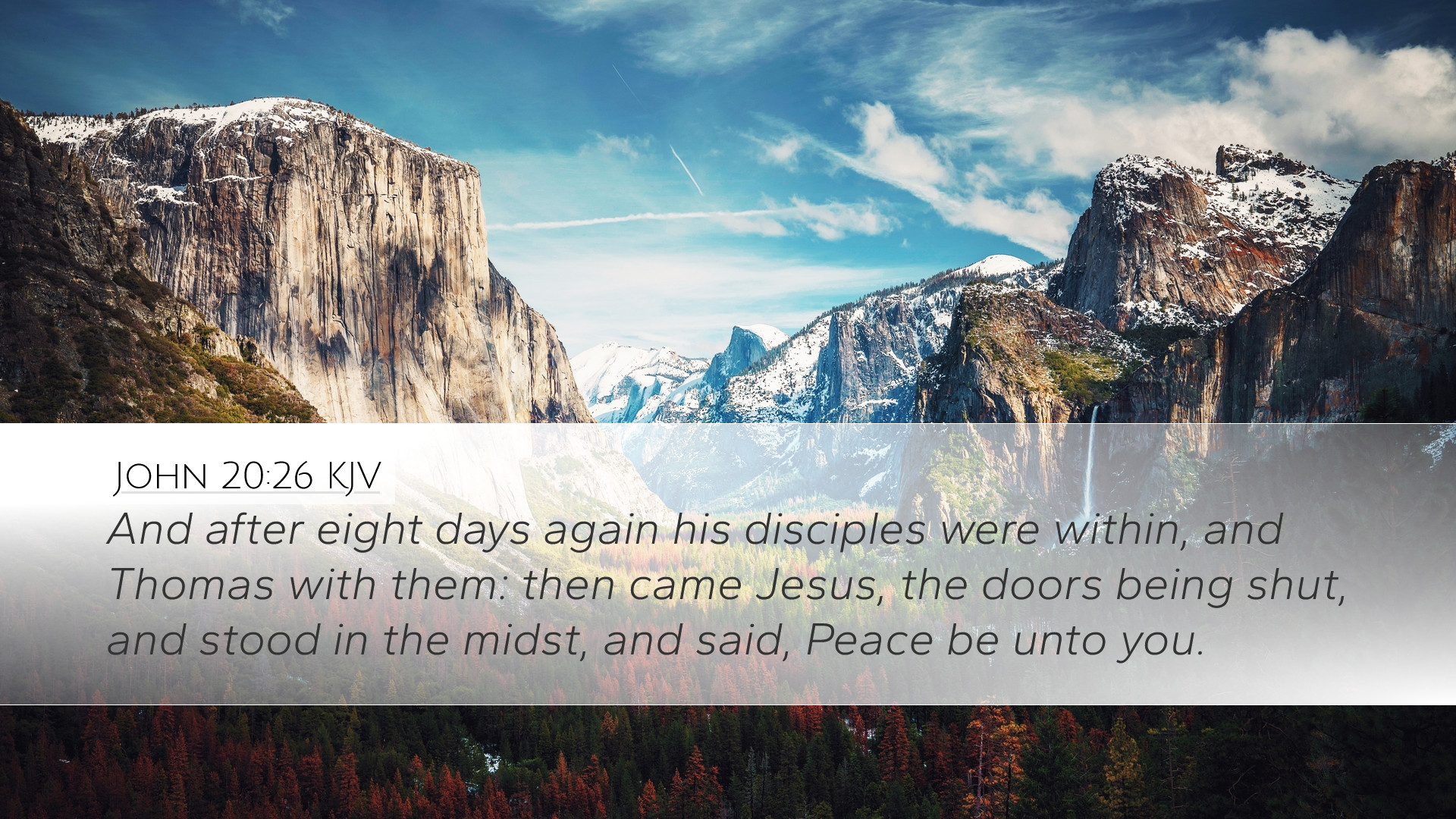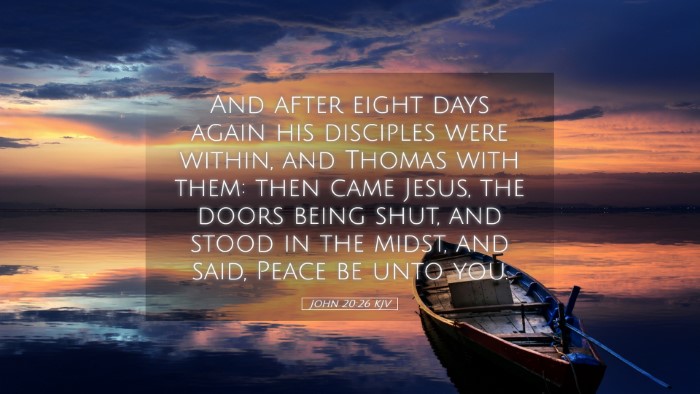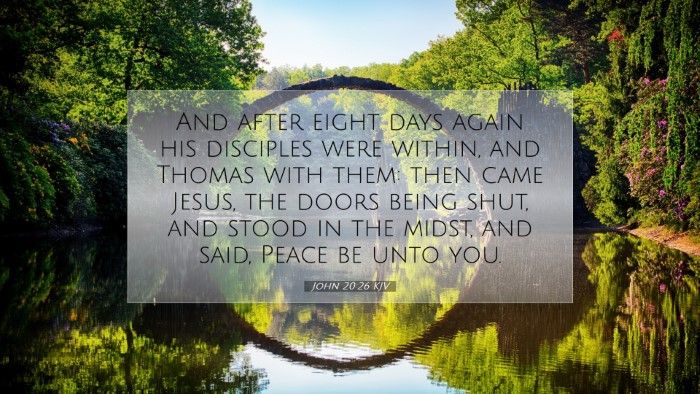Commentary on John 20:26
Verse: John 20:26 - "And after eight days again his disciples were within, and Thomas with them: then came Jesus, the doors being shut, and stood in the midst, and said, Peace be unto you."
Introduction
The passage of John 20:26 vividly describes a unique and profound moment in the post-resurrection appearances of Jesus. In this commentary, we will explore various interpretations and insights from public domain commentaries, which provide depth and richness to this scripture, particularly focusing on the significance of Thomas' presence and the peace of Christ.
The Context of the Passage
Matthew Henry emphasizes the importance of understanding the surrounding context of the scripture. The event occurs eight days after the first resurrection appearance to the disciples, where Thomas had expressed doubt about Jesus' resurrection. In a closed room, marked by fear and uncertainty, the disciples gathered again, reflecting their need for assurance and hope.
Significance of Eight Days
Albert Barnes notes that the specific mention of "eight days" is significant, symbolizing a new beginning. In Jewish tradition, the eighth day after a week implies a fresh start. This passing of time also indicates the patience of Christ in addressing the doubts of His disciples, particularly Thomas.
Thomas' Presence
Adam Clarke emphasizes the critical aspect of Thomas being present among the disciples. Despite his earlier doubts, Thomas’ inclusion signifies that even those who struggle with faith can find themselves in the midst of God's grace. This moment serves as a reminder that the journey to faith may include setbacks but can ultimately lead to profound revelations.
The Appearance of Christ
The appearance of Jesus in a locked room highlights His divine nature. Matthew Henry notes that the doors being shut symbolizes both the fear of the disciples and the miraculous entrance of Christ, illustrating that physical barriers cannot hinder His presence. This serves as an essential teaching on the omnipresence and omnipotence of Christ.
“Peace be unto you”
The greeting Jesus extends marks a significant theological moment. According to Albert Barnes, the pronouncement of peace is a restoration factor, indicative of the reconciliation between God and man through Christ. In their troubled state, the disciples experience not merely a greeting but an assurance of tranquility and divine presence amidst their fears.
Theological Implications
This passage presents several theological implications for pastoral and scholarly reflection.
- Doubt and Faith: The narrative of Thomas exemplifies the balance between doubt and faith in our spiritual journey. Adam Clarke highlights that faith is not the absence of doubt but rather the perseverance through it.
- Christ’s Assurance: In addressing the disciples' fear, the response of Christ offers a model for pastoral care. Addressing fears with the assurance of peace is fundamental in ministry, as noted by Matthew Henry.
- Community in Doubt: The context of gathered disciples speaks to the importance of community. As expounded by Albert Barnes, it’s within fellowship that believers can engage in doubts and receive encouragement towards belief.
Applications for Ministry
For pastors and ministry leaders, John 20:26 provides a wealth of applications:
- Creating Safe Spaces: Encourage congregations to foster environments where doubt can be shared openly without judgment.
- Proclaiming the Peace of Christ: Actively proclaiming Christ’s peace can help alleviate fear and anxiety within the community.
- Recognizing the Diverse Spiritual Journeys: Understanding that some individuals may be at different points in their faith journey calls for a compassionate and patient approach.
Conclusion
In summary, John 20:26 serves as a significant reminder of Christ’s persistent and loving approach towards our doubts and fears. Through His miraculous presence and the assurance of peace, He calls us to a deeper faith. The insights from public domain commentaries enrich our understanding, emphasizing that every seeker, much like Thomas, can experience the transformative power of Christ’s resurrection and the peace that follows. This passage encourages all to embrace doubts while seeking deeper truths within a community grounded in faith.


